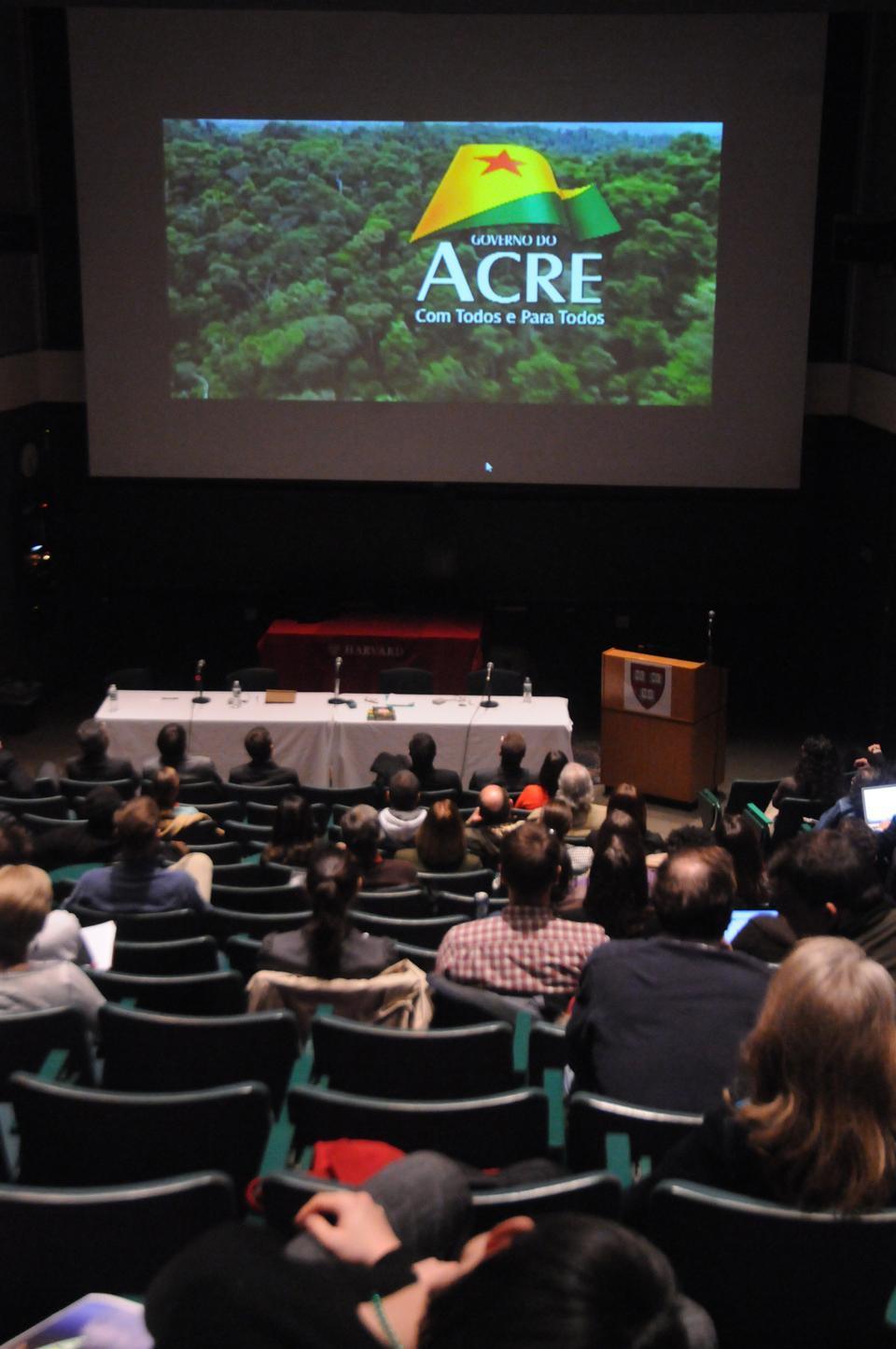
News
Summers Will Not Finish Semester of Teaching as Harvard Investigates Epstein Ties

News
Harvard College Students Report Favoring Divestment from Israel in HUA Survey

News
‘He Should Resign’: Harvard Undergrads Take Hard Line Against Summers Over Epstein Scandal

News
Harvard To Launch New Investigation Into Epstein’s Ties to Summers, Other University Affiliates

News
Harvard Students To Vote on Divestment From Israel in Inaugural HUA Election Survey
Officials and Professors Discuss Preservation of Amazon

Government officials hailing from Acre, Brazil joined two Harvard professors in a discussion last night about practices for developing local communities while preserving the Amazon Rainforest.
Arnóbio “Binho” Marques, who is currently the governor of Acre, praised the state’s shift in focus over the last 12 years to maintaining biodiversity instead of simply stripping the Amazon of its resources to develop the area.
Marques stressed the importance of “florestania,” which he said stands for a “high quality of life with and in the forest.”
Acre’s deforestation of the Amazon has decreased by nearly 50 percent from 1998 levels, according to Jorge Viana, who was the state governor from 1999 to 2007.
Viana said that with funding from the World Bank, the state was able to improve living standards and quality while it also maintained the area’s natural resources.
The government is currently building highways and changing the local infrastructure to allow for more sustainable development.
The state’s illiteracy rate has decreased from 25 percent to 14 percent, and unemployment dropped from 8 percent to 4 percent, according to Viana.
Additionally, Viana said that the government is working to better connect isolated forest communities through various methods, such as delivering medical supplies to the river communities on boats.
Harvard Law School professor Roberto M. Unger, who also spoke at the event, added that he hopes the government will extend these advances to neighboring states.
“The real future has to be produced by a [global] revolution in the nature of natural resource extraction,” Unger said.
Audience member Lucia Olavarria, originally from Peru, said that she was intrigued by the state’s efforts.
“It was interesting to see how the political movement can achieve such success,” Olavarria said.
Want to keep up with breaking news? Subscribe to our email newsletter.
